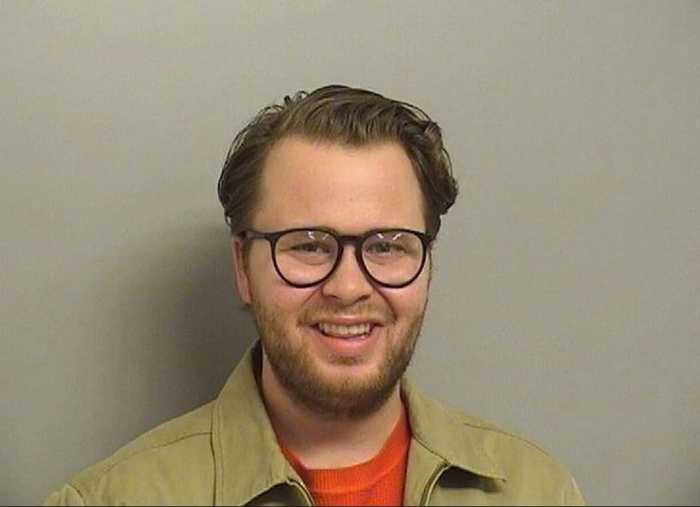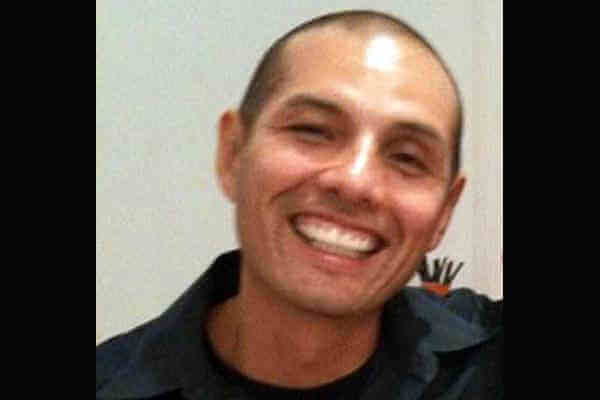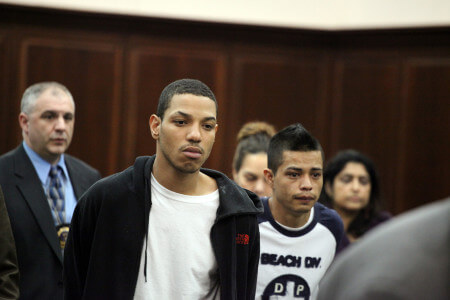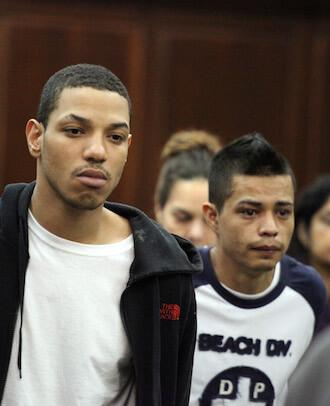Mark Carson was 32 when he was gunned down in the West Village in May 2013. | NYPD HANDOUT
A number of statements made to police and a prosecutor by the accused killer of Mark Carson may be thrown out because police failed to give Elliot Morales his Miranda warnings and the assistant district attorney who took Morales’ videotaped statement ignored both his request to remain silent and his refusal to answer questions.
“You’re obviously aware that there are some problems with the question and answer session,” Judge Charles H. Solomon told Shannon Lucey, the assistant district attorney who is prosecuting the case, during a May 11 hearing on the admissibility of evidence in the case.
Morales, 35, is alleged to have shot and killed Carson, a 32-year-old gay man, in the West Village just after midnight on May 18, 2013. He is charged with second-degree murder as a hate crime, weapons possession, and menacing. Police arrested Morales within minutes of the shooting and he had the gun that was used to kill Carson in his possession. Over the next 13 hours he made 27 statements to law enforcement, including a videotaped statement he gave to Joan Illuzzi-Orbon, another assistant district attorney. He confessed to the killing in at least 10 of those statements. He was read his Miranda rights for the first time at the start of that video, which began at roughly 1 p.m. on May 18.
Judge weighs police, district attorney failure to heed Elliot Morales' Miranda rights, but other strong evidence remains
Once Morales was in police custody, law enforcement was required to inform Morales of his right to remain silent, his right to an attorney, and other Miranda rights if they wanted to use any statements he made at a later trial. His attorney, Gary Sunden, said police began questioning Morales soon after he was in handcuffs.
“There were questions put to Mr. Morales, on the ground, face down,” Sunden said during the hearing. “At the time of all of these alleged statements, no Miranda warnings had been given to Mr. Morales.”
Later, between 8 a.m. and 11 a.m., when Morales was being held in a 6th Precinct interview room, a police sergeant and two detectives repeatedly asked Morales his name, address, sexual orientation, and other so-called pedigree questions, which they are allowed to do without Mirandizing a suspect. Police are not allowed to engage in banter or apparently idle conversation in the hopes of eliciting incriminating statements.
During those three hours, Morales first said, “I feel uncomfortable giving out my personal information. I know my Miranda warnings. I have the right to remain silent and not answer any questions,” and then, “You have my ID. I am not telling you anything. I know my Miranda rights.”
In the first eight minutes of the video, Morales said, “I don’t feel comfortable answering questions,” and then, “Can I go with remaining silent?,” and finally, “I refuse to answer any more questions.”
The prosecution said that the statements Morales made right after his arrest, some of which were recorded on police cell phones, were spontaneous utterances, which are exempt from the Miranda requirements.
“At no time was the defendant being interrogated,” Lucey said. “What prompted the police officers to turn on those cameras was the defendant talking. Nothing was said to the defendant.”
She said that the police only asked Morales about pedigree information in the 6th Precinct and that he chose to disclose information about the crime.
“The intention was to ascertain pedigree information,” Lucey said. “The entire time they were in the squad room, the statements were voluntary.”
Toward the close of the hearing, Lucey appeared to tacitly concede that they will be barred from using at least the videotaped statement during the prosecution case when she asked Solomon to allow her to use that statement to impeach the testimony of any witnesses, including Morales, that the defense may present in their case. Solomon, who will rule on the admissibility of the statements on May 26, appeared to be amenable to the use of the videotaped statement in that context.
Even without the statements, the case against Morales remains strong. In addition to the gun, the prosecutor has at least three eyewitnesses to the shooting and may have a fourth who was a longtime friend of Morales who was with him on May 18.
Morales continues to insist that he wants to represent himself, and his propensity for making errors may help the prosecution. That tendency was on exhibit in a request for a material witness warrant he submitted to Solomon, which was denied, in which he identified a possible witness “as a very close friend of mine of twenty years who had been one of the individuals I was with prior to the occurrence of the incident I am being accused of committing.”
If the prosecution calls that witness, identified by Morales as Joe Anthony Matos, they now have Morales affirming that Matos can easily identify him because they have been close friends for 20 years.
Morales almost blew the May 11 hearing by first asking that he make the legal arguments on admissibility. He relented only after meeting privately with Sunden.
“If you were a real lawyer, you would realize you have a real issue here,” Solomon told Morales before argument began. “You have a good argument on the Miranda issue, but you don’t see it. You don’t see it because you’re not a lawyer.”
Editor's note: Due to an editing error, the original sub-head for this story, which appeared in print as well, inaccurately referred to the district attorney's “failure to read Elliot Morales his Miranda rights.” As the story makes clear, the DA, in fact, did read him his rights at the start of a videotaped interview. The judge, however, is weighing whether Morales' repeated statements he did not wish to answer questions during that interview means the interview will have to be excluded from evidence in the case.



































